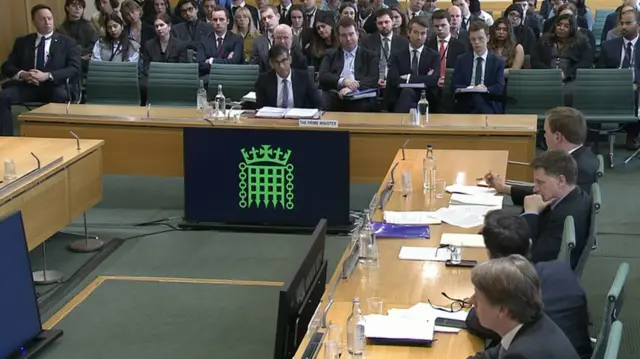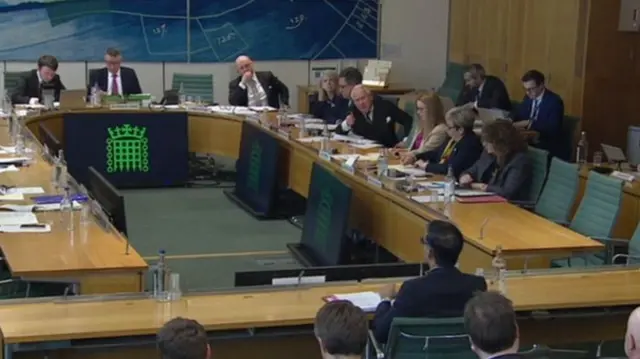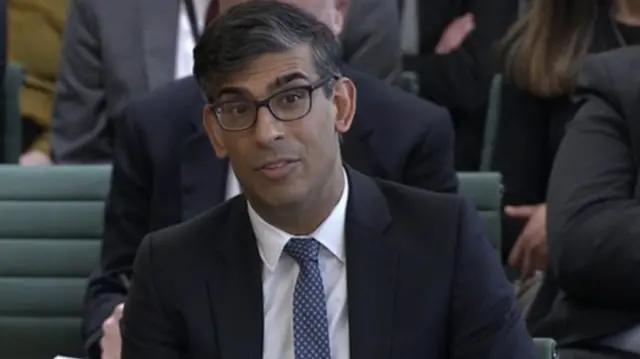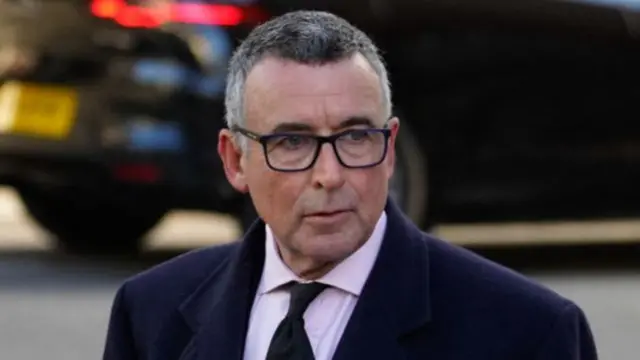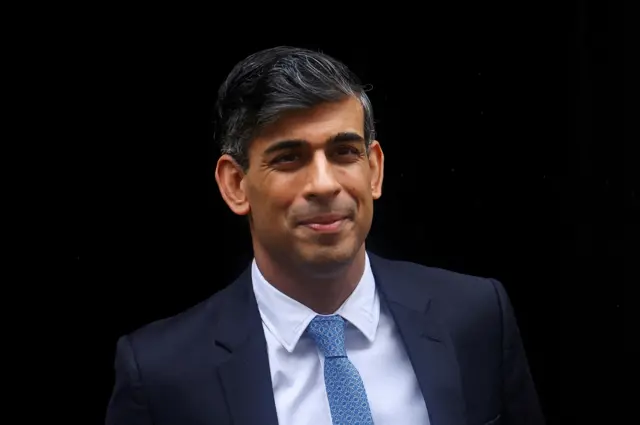PM refuses to give specifics when asked about Rwanda Billpublished at 14:10 GMT 26 March 2024
If you're just joining us, Rishi Sunak is appearing before the Liaison Committee, taking questions from MPs about the work he's done as prime minister since December.
Labour's Dame Diana Johnson's questions focus on the government's Rwanda Bill - she specifically asks if there's an airline in place to take illegal migrants to Rwanda or if the RAF will be deployed.
The Home Office "are considering a range of options," Sunak says, adding preparations are being made but refuses to give specifics.
